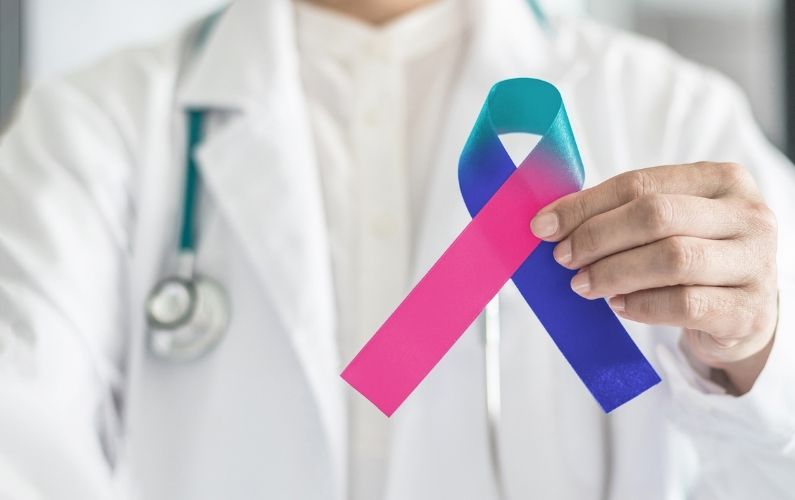How to Reduce Your Cancer Risk

Your lifestyle could be increasing your cancer risk. Learn how to reduce your chances of getting cancer by making these simple changes.
In honour of world cancer day on February 4th, we will go through how you can decrease your chances of getting cancer.
Stick around to learn more!
Can Cancer be Prevented?
Not to be discouraging, but no, not all cancers can be prevented. However, there are lifestyle choices you can make to decrease your risk of getting cancer. Let’s take a closer look.
Lifestyle Choices to Reduce Your Cancer Risk

Three lifestyle choices that will help reduce your risk of cancer are:
- Living smoke-free
- Being sun safe
- Maintaining a healthy body weight
1. Live Smoke-Free
First, the culprit responsible for an estimated 30% of all cancer deaths in Canada is smoking. This includes cigarettes, cigars, e-cigarettes and other forms of inhaled smoke. The tobacco used in cigars and cigarettes contains many poisonous substances that stop your organs from functioning correctly. If you currently smoke and are looking for ways to quit read our post on The Health Risks of Smoking + How to Quit.
2. Practice Sun Safety
Secondly, living in the rainiest province in Canada, many British Columbians overlook sun safety. Unfortunately, Canada’s UV rays are strong enough to put you at risk for the most common type of cancer, skin cancer. The good news is, this is one of the most preventable types of cancer. Here are a few simple ways you can protect yourself:
- Check the UV index if you are planning on being in the sun (this includes being near a window)
- Use sunscreen daily
- Wear long sleeves and pants
- Wear a hat
3. Maintain a Healthy Bodyweight
Another factor is having a healthy body weight. This can help reduce your risk for 13 different types of cancer. Although, if you have excess body weight, you’re not alone; over half of all Canadians are overweight. Consuming too many calories and burning too few calories, among other things, can cause excess weight. Likewise, comparing how active you are to the amount and type of food you’re consuming is always a good thing to keep front of mind.
How to Make Informed Decisions About Cancer Prevention
Check Your Family’s Cancer History
Being informed about your family’s health history allows you to be proactive instead of reactive when it comes to cancer prevention. This is especially important if you have first degree relatives with cancer. However, keep in mind that only about 5 to 10% of cases are hereditary. Nevertheless, if you have a family history of breast, prostate or any of these cancers, consider talking with your doctor about genetic testing and screening.
Vaccinations and Cancer Risk
Vaccinations may prevent cancers caused by certain viruses and other infections. HPV, Hepatitis, and H. Pylori, amongst other viruses, can all be causes of cancer. Talk to your healthcare practitioner to see if getting vaccinated is right for you.
When to Check Yourself for Cancer
Checking yourself is one way to help find cancer early. For instance, men, testing for prostate cancer should start at age 50, although if you are at high risk, consider testing at 45. Women should start checking themselves and talking to their doctor starting at 40 as they are at a higher risk for breast cancer.
Summing-up
To sum things up, although all cancers aren’t preventable, there are lots of lifestyle changes you can make to reduce your risk. In addition to this, proactive screening and tests can help detect cancer in its early stages. Contact us and talk to a pharmacist about what steps you should take to reduce your cancer risk.
References
- https://www.cancer.ca/en/prevention-and-screening/reduce-cancer-risk/can-cancer-be-prevented/?region=bc
- https://www.who.int/news-room/fact-sheets/detail/cancer#:~:text=Cancer%20is%20a%20leading%20cause,Lung%20(2.09%20million%20cases)
- https://www.medicalnewstoday.com/articles/10566#smoking-and-health

